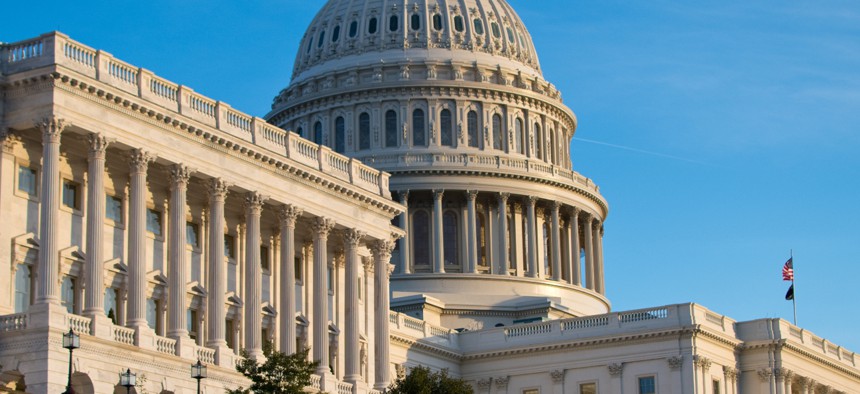
The select committee must issue a final report with its findings by Jan. 2, 2025, and then it will sunset 30 days after the report is filed. Douglas Rissing/Getty Images
House Republicans are Ready for More (And Different) COVID Oversight
They’re looking to maintain a panel investigating the response to the COVID-19 pandemic, but its mission will be different from that of the previous session of Congress.
House Republicans are looking to maintain a panel investigating the response to the COVID-19 pandemic, but its mission will be different.
This change is part of the House rules package for the 118th Congress which members are voting on Tuesday. Top House Republicans have been declaring for a while now that the Democrats have not conducted sufficient COVID oversight and pledged to do so after they took back the House in the midterm elections.
The panel will “make findings, and provide legislative recommendations on the origins of the coronavirus pandemic, including the federal government’s funding of gain-of-function research, the use of taxpayer funds and relief programs to address the pandemic, the effectiveness of laws and regulations to address the coronavirus pandemic and prepare for future pandemics, the development of vaccines and treatments and the implementation of vaccine mandates for federal employees and the military, the economic impact of the pandemic, including state and local government responses, the impact of school closures on American children, executive branch decisions and communications related to the pandemic, the protection of whistleblowers who provided information about improper activities, and inter-government cooperation regarding oversight of the preparedness for and response to the pandemic,” reads a summary of the package.
The panel will be a subset of the House Oversight and Accountability Committee, which the House Republicans seek to rename from the House Oversight and Reform Committee.
The speaker can appoint up to 12 members to serve on the select committee and designate one member to be the chair. No more than five members can be appointed based on the recommendation from the minority House leader. The chair and ranking member of the House Oversight and Accountability Committee will serve as ex-officio members. The select committee must issue a final report with its findings by Jan. 2, 2025, and then it will sunset 30 days after the report is filed.
The House oversight committee’s companion panel in the Senate, the Senate Homeland Security and Governmental Affairs Committee, under the leadership of Sen. Rand Paul, R-Ky., is also going to look into the origins of the pandemic. Government Executive reported last week about the vast changes coming for that committee.
The Democrats on the House Select Subcommittee on the Coronavirus Crisis released their final report on Dec. 9, and then had their final hearing on Dec. 14, representing a culmination of the panel’s work since its establishment in April 2020.
“Our government entered the COVID crisis unprepared for its magnitude. Our nation’s public health infrastructure was underdeveloped,” said Rep. Jim Clyburn, D-S.C., chairman of the select subcommittee, at the hearing. “On top of these existing vulnerabilities, the previous administration chose to minimize the coronavirus and discourage proven health measures by undermining the scientists leading the pandemic response.”
Rep. Steve Scalise, R-La., ranking member of the select subcommittee, said the final report was “further proof that Democrats’ sham panel never was about impartial oversight, it was purely about politics” and blasted the Democrats for not looking into the Biden administration’s pandemic response.
Efforts to enact an independent 9/11-style commission to investigate the pandemic have stalled. In addition to the Congress-led efforts, there has also been the oversight work of the inspector general community and Government Accountability Office, alongside their law enforcement partners.
Rep. Jim McGovern, D-Mass., outgoing chair of the House Rules Committee, said in a statement on Monday he was “very disappointed” by the proposed rules package by the Republicans. “Instead of building on Democrats’ work to create a more accommodating Congress, Republican leaders have once again caved to the most extreme members of their own caucus.”







